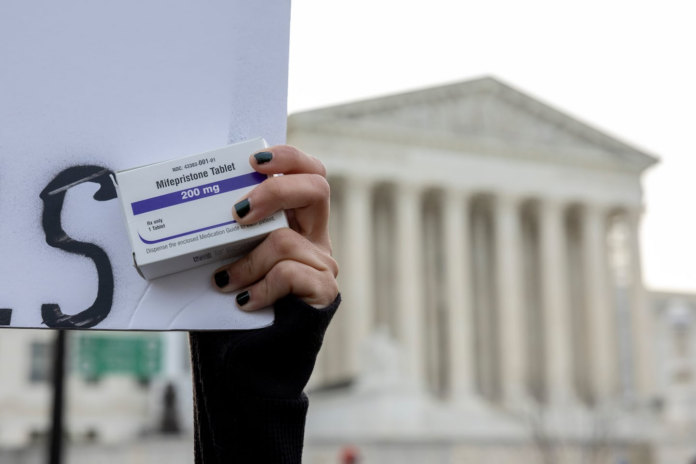A condom is only an entry-level way to trust hope over experience, and while it’s more uncommon to have an IUD dislodge, what are the chances that the ultimate protection of a tubal ligation could yield a pregnancy? Ask me. I can also tell you what it’s like to lose that baby on the delivery table. And how, after laboring in vain, my two other children were given life by urgent surgical intervention. My point is that these failures are not rare. In other words, when a woman’s body is already accustomed to sustaining both grief and joy in states of emergency, who in conscience would want to take away what few medical safeguards there are? Enter JD Vance.
Like many women, I’ve had more pregnancies than I have children. While I have relied on various forms of contraception, it has failed me three times. Why am I telling you this? Because my own fate and that of all women — and therefore the fate of the world — is defined by the reliability, or not, of our reproductive systems. And as a woman who has both chosen and been deceived by the ultimate fallibility of my contraceptives, I know I’m not alone in recognizing that, with the recent election, our odds of access to them just got diminished.
In January 2023, two years ahead of his swearing-in as our next vice president, then-Senator Vance signed a letter from Republican lawmakers to the Justice Department requesting the enforcement of the provisions of the Comstock Act of 1873. They wrote, “We demand that you act swiftly and in accordance with the law, shut down all mail-order abortion operations.”
It would be absurd if it were funny that a federal statute enacted a century and a half ago has traction in today’s America. But the power it had to cause Margaret Sanger to be indicted in 1914 for using the postal service to distribute “The Woman Rebel,” a magazine that covered sex education and contraception, is the power the Comstock Act still has today to prevent the mailing of “abortifacients” such as mifepristone and its companion pill misoprostol. In their letter, Vance and his colleagues also mentioned potentially prosecuting physicians, pharmacists, and others “who break the Federal mail-order abortion laws.” Could the birth control pill be next? Yes. Because those who want to renew the Comstock Act’s ancient power over women and their caregivers can re-implement it. Because they can.
Advertisement
When I was in my mid-20s I visited an immaculate birthing clinic in upcountry Ghana. Imagine several wooden delivery tables with holes cut into the center, below each of which was suspended a white enamel basin. I had recently stopped taking the pill that, just five years earlier, my father-in-law, Dr. C. Lee Buxton, had brought before the Supreme Court in Griswold v. Connecticut, the privacy case whose 7-2 ruling allowed physicians like him to prescribe birth control. Though I knew that even if I were pregnant I’d be home from Ghana well before my due date, I still had everything to learn about what can go wrong. What could it have meant to me if you’d told me then that my first child would not be born until nine years later?
The point is: Even when a woman gets to choose, she doesn’t always get to.
If our partners can trust us, why won’t our legislators? We women are durable, and yet our reproductive systems are fragile. The further paradox is that our strength is taken for granted while not allowing for nature’s ultimate governance. Would Vance and his fellows agree to be at the mercy of such unpredictability? Surely not. And the danger becomes even more fierce, and consequential, now that he and those like him have gained the power to refuse women the medical safeguards of the 21st century.
Advertisement
As an upper-middle-class white American woman, I’m among the relatively powerful, and so I instinctively join forces with the weak. In my father-in-law’s case before the court, privacy was established as an ultimate value. Yet I relinquish my own privacy with the hope that others might too, to challenge Vance, whose oath of office — unlike a physician’s code of ethics — does us harm.
Alexandra Marshall is author of five novels and two works of nonfiction. Her most recent book, a memoir, is “The Silence of Your Name: The Afterlife of a Suicide.”




